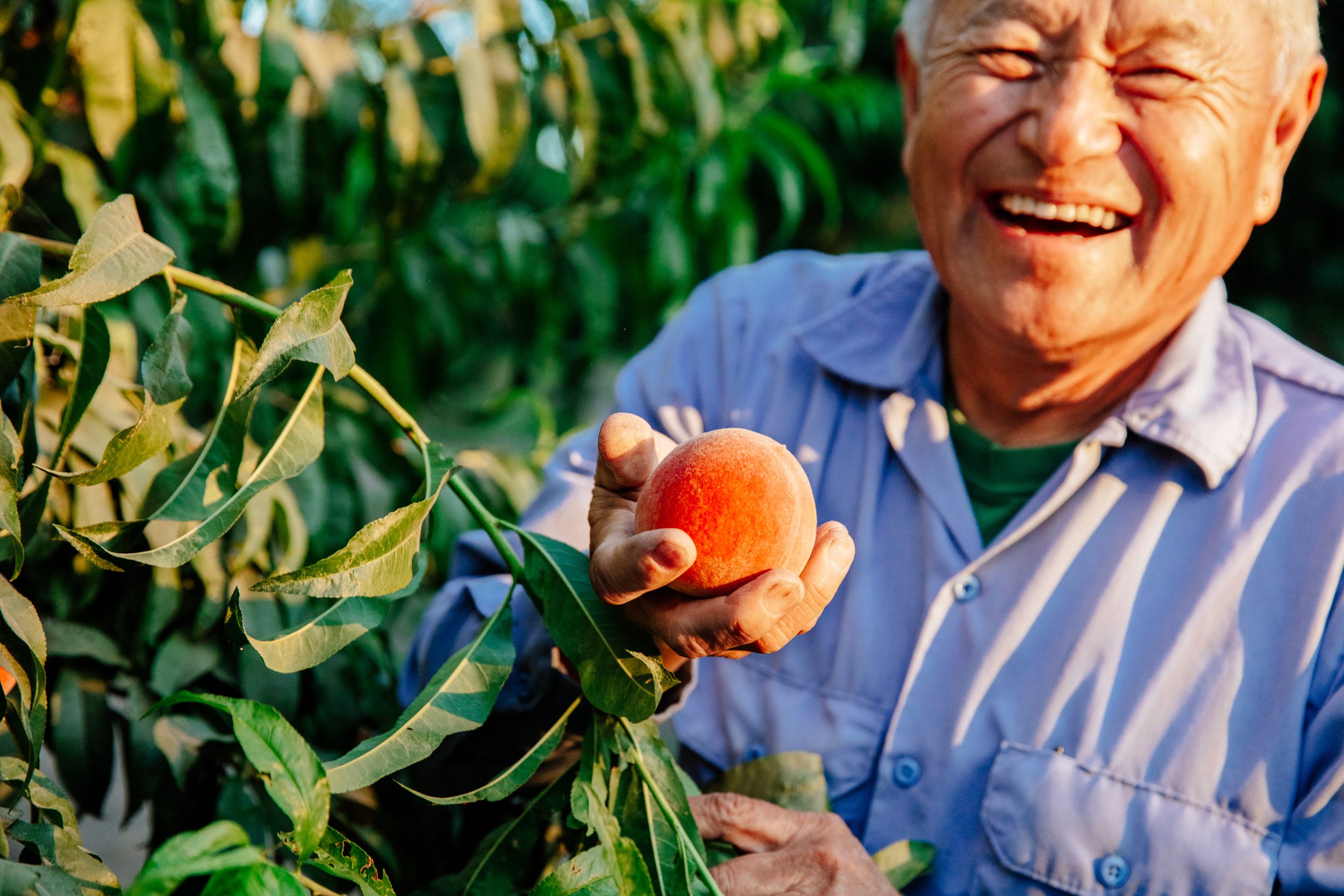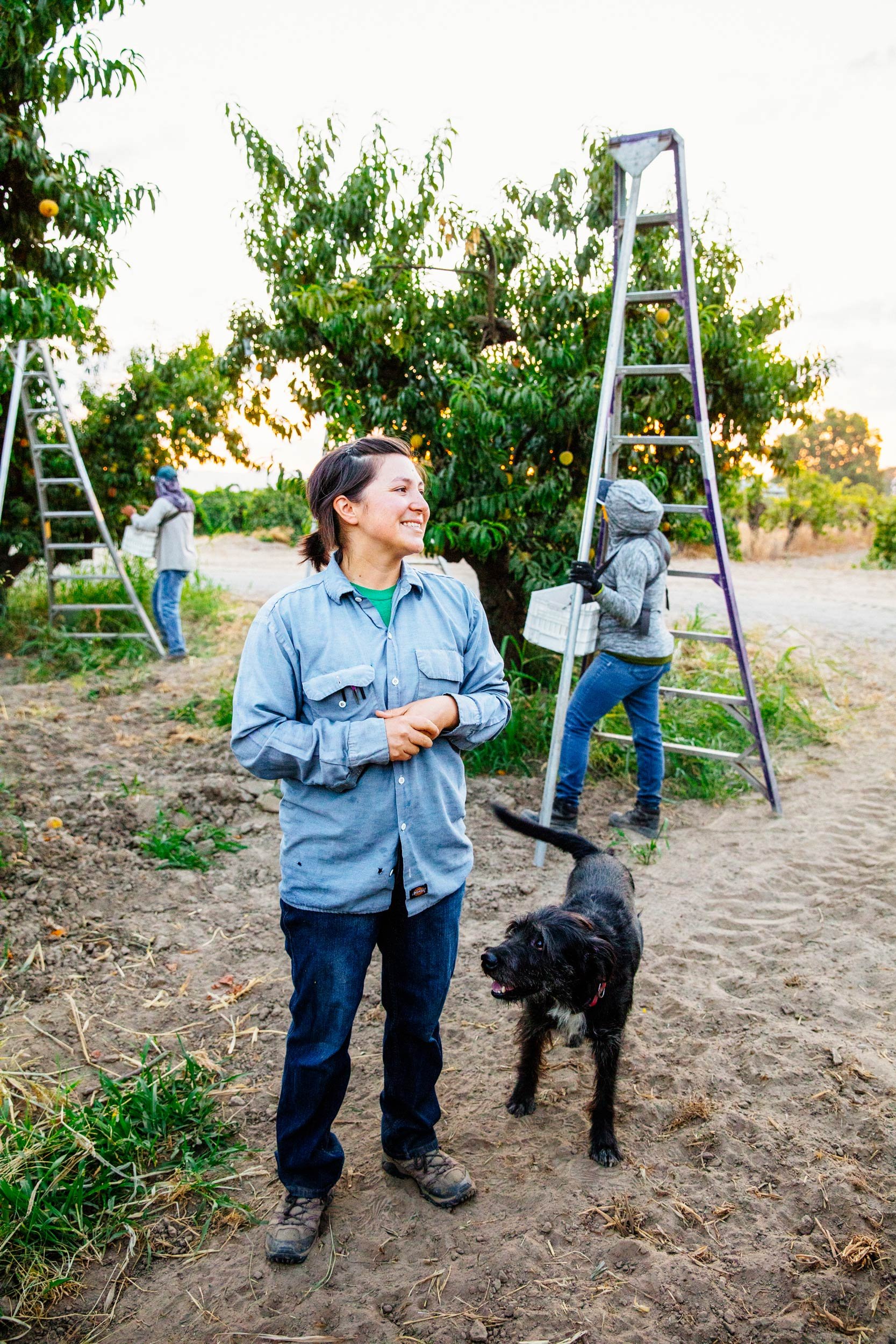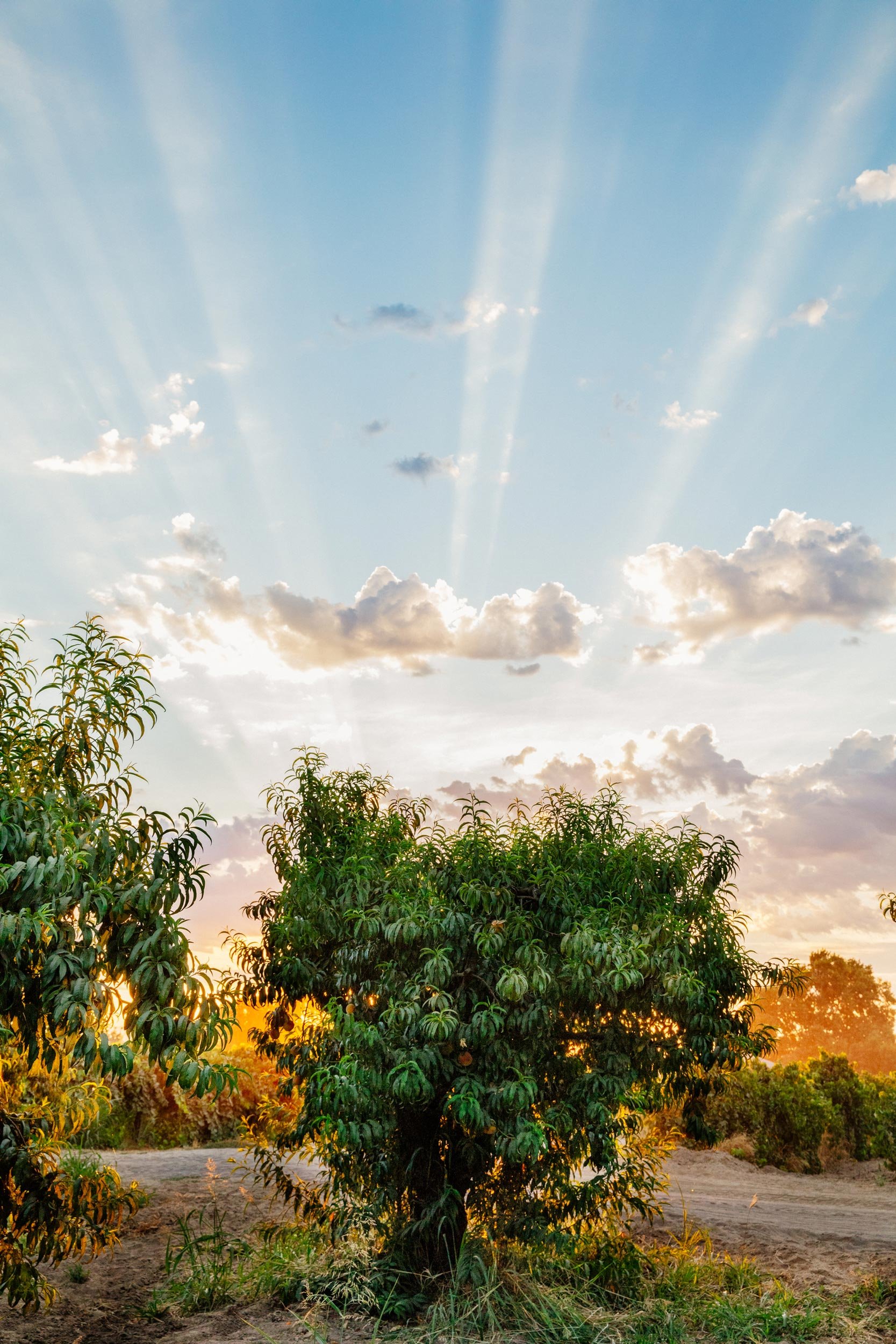This Family Grows California’s Sweetest Peaches
If you don’t know the Masumoto family, you probably know their peaches.
It’s still dark when the dogs start whining on the porch. Inside the kitchen, Nikiko Masumoto, early thirties, is brewing coffee and gently ribbing her father, David “Mas” Masumoto, now in his sixties, for not knowing how to scramble eggs. By 5 o’clock, they’re climbing into trucks and tractors and kicking up clouds of dust in the first blush of dawn. It’s cool now, but don’t be fooled. This is summer in the Central Valley, and it’s going to break 104 degrees today.
They’re headed to the oldest orchard on the property. Masumoto Farm is only 80 acres, but this is a small and special block of trees. The Masumotos came over at the turn of the 20th century, and like many Japanese families, wound up in internment camps during World War II. “When my ojiisan bought the farm in 1948, the ground was so hard packed, he had to use dynamite to break through.” Nikiko kicks the soil, now soft and thick. “The metaphor isn’t lost on me—he fought to put down roots in a country that quite literally did not want him.”
The horizon lights up electric pink, separating the leaves from the trees. Mas helped plant these rows when he was 12 years old, and jokes that if you see a crooked trunk, it was probably his handiwork. He worked long, scorching summers as a disaffected teenager, cheating at the local Boy Scout jamboree with his Latino farm worker buddies. After graduating from UC Berkeley, he came home with a renegade idea. Masumoto went organic in 1980, before there was even a certification. Chez Panisse was among their first customers, where Alice Waters proudly placed an entire Masumoto peach on a plate and called it dessert.
Dust off a peach. Take your first bite. Soft fuzz gives away to rosy flesh, before all juice breaks loose, in a rush of tart and sweet. Masumoto grows several varieties, each with a distinct character. So if you’ve noticed a few options in our Marketplace, here are the key differences: The Spring Lady arrives early season, light and floral. The Gold Dust is the littlest, an old-fashioned heirloom. The Sun Crest has the most outrageous flavor and finish. “We only do big acid, big flavor,” explains Nikiko. “If you’re into white peaches, that’s cool, but you won’t find them here. Our peaches knock you off your feet.”
At Masumoto, every single peach gets a personal touch. They’re picked and sorted by hand, by farm workers who come back season after season, and the family, with mom Marcy gently pressing to test for ripeness, and brother Korio carefully sorting by size into boxes. They insist on only harvesting at peak ripeness, and they only ship locally. Given how Good Eggs supports small farms and local produce, it was immediately a strong partnership. Not only are you getting a beautiful piece of fruit, it’s reaching you in record time: A Masumoto peach goes from the tree to your table in less than 36 hours. “We were so excited to reach a larger community of people via Good Eggs,” Nikiko confirms. “And we feel like online shopping gave even our littlest peaches, which might get picked over in markets, a fighting chance to be seen and savored.”
To make that happen, Nikiko sweats through the heat of the day. By late afternoon, she’s passing her father on the road, dropping off deliveries. After dark, she’s catching up on emails and invoices. Like her dad, she came back from Berkeley with some crazy ideas. (“She shaved her head the first year,” says Mas. “I was totally that girl,” confirms Nikiko.) Mixed race, queer, and with a degree in gender and women’s studies, she’s definitely not your average farmer. Fewer than 14 percent of principal operators are women, and she’s had her share of experiences, with conservative “windshield” farmers (guys who never get out of the truck) and macho laborers alike. Regardless, Nikiko is in the fields every day, greeting her female workers in fluent Spanish. She knows they appreciate having a female boss who’s actively around, and if they ever need to take a call or leave early to pick up their kids, that’s never a problem.
From her grandfather breaking the ground with dynamite, to her father coming back from college with radical notions about organic farming, to her passion for supporting female farm workers, Nikiko is inheriting an incredible legacy. But on warm summer nights, biting into a juicy peach is one of life’s greatest pleasures. So the next time you pick up a Masumoto peach, “I just want you to know that you’re loved,” Nikiko laughs, blinking back tears. “Think of every hand that touches that piece of fruit to bring it to your home and family. When you bite into one of our peaches, you don’t have to agree with me, you don’t even have to like me. But we’re in the business of feeding people. We’re here for the love. We hope you can taste it.”
Photos by Annie Martin. Copyright 2018.








